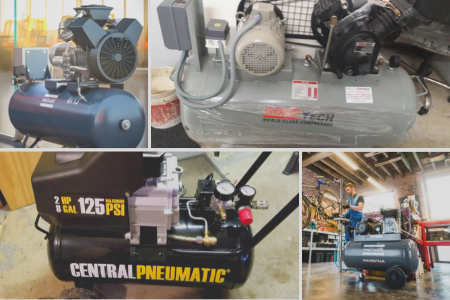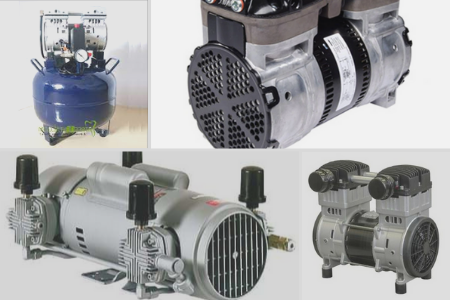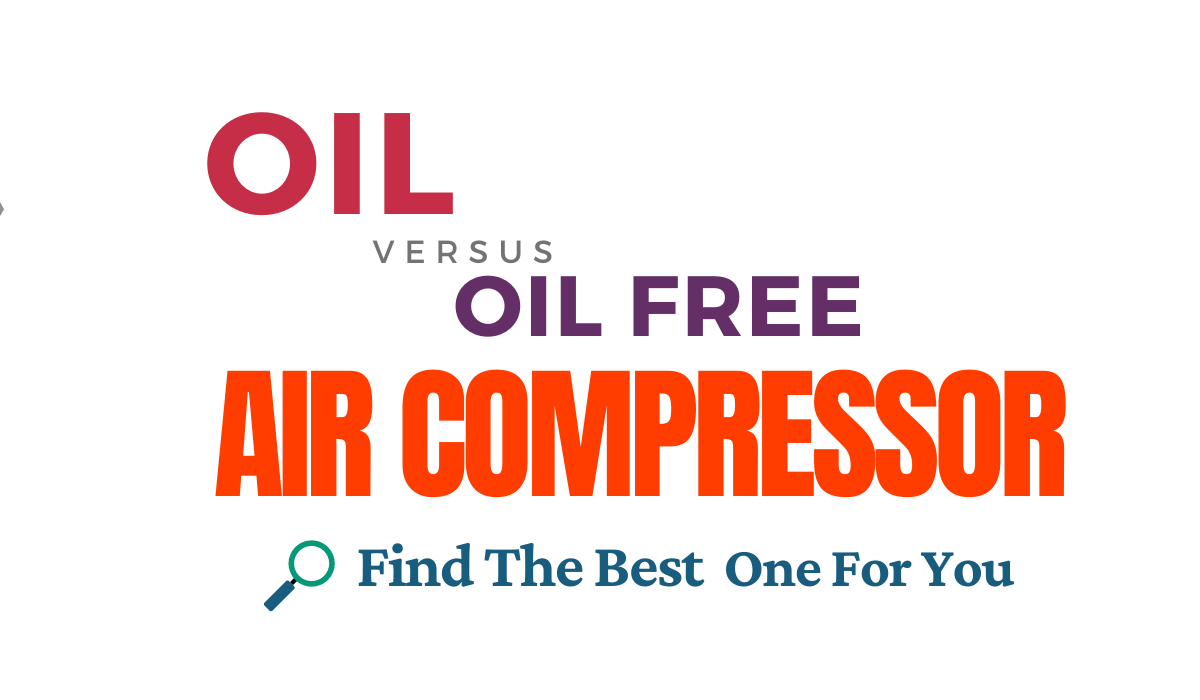The debate over the issue of oil vs oil free air compressor is often seen among all the users, including industrialists, mechanic, contractor, and homeowner.
Once it was only oil lubed compressors available. But with the blessing of science and technology, oil-free air compressors appeared in the market and took advantage of over conventional oil compressors in some cases. Both, like anything on the planet, have their upsides and downsides.
However, it’s time to draw a conclusion to this argument and figure out what the big difference is and what to consider while choosing either of them. Before going to dive into the critical discussion, let me clear you what oil or oil-free means.
Like many other machines, air compressors use lubricants to reduce heat generation due to friction of moving parts. Particularly, reciprocating air compressors require more lubrication as they have more moving elements used to draw and pressurize the air. Depending upon this lubricating method, air compressors come in two primary types: oil-lubricated and oil-free air compressors.
Oil-lubricated air compressors

Oil-lubricated compressors utilize oil as lubricants to moderate the heat generated by the friction of moving parts. They require oiling and changing the oil on a regular basis. They are the most common type with the traditional lubricating system.
The traditional oil compressors apply two methods of lubrication. They are as follows:
Splash
This method employs a rotating oil dipper connected to the bottom of the piston’s connecting rod that swings continuously, and splashes oil from the reservoir to the internal moving parts. The reciprocating air compressors are the most common example which use splash lubricating method.
Pressure
This system uses an oil pump run by the crankshaft, a similar mechanism to the piston movements, which draws oil out of the crankcase. The oil is then pumped through the passageways to create a moving stream of oil inside the compressor. This is the best method of lubrication to lubricate critically moving parts directly which is mostly used in rotary and some industrial heavy-duty air compressors.
What is an oil less compressor?

As the name suggests, oilless compressors, on another hand, don’t require oil for lubrication. They instead come in with a pre-lubricated design, allowing them to lubricate by themself with a permanent lubrication coating. Usually, they apply Teflon coating as a lubricant which tends to degrade slowly over a lifespan of an air compressor.
oil free vs oil lube air compressor - which one is better?
Let’s forget all the myths you have heard about both and draw a real comparison between them, considering some practical aspects, that will help you choose one over another.
Lifespan
Regular oiling and routine maintenance make any mechanical device more durable and help have a longer lifespan. In this regard, oil lubed air compressors tend to be more dependable and last longer than oil-free design since they are well lubricated and routine maintenanced. That’s why large projects like farming prefer oil compressors to oilless one. But nowadays, technology advancement allowed the oil-free design to perform better and longer than ever before.
Noise level
Here is a big difference. Oil-free air compressors are much noisier than their oil-lubricated counterparts. This is an important consideration when you are planning to buy an air compressor for home application. Of course, you don’t want to disturb your neighbor by running a compressor that makes intolerable noise. As oil compressors are regularly lubricated, they operate with less noise that makes them suitable for quiet environment.
Contamination
Oil content in compressed air is one of the most common contaminations. The air compressors functioning with oil lubricants are mostly responsible for oil content in the compressed air. Due to regular oil lubrication and maintenance, oil mist forms in the air in oil lubed compressors. And it’s very difficult to stop forming oil mist in compressed air generated by oil compressors. When the age of compressor oil is more, the risk of contamination in compressed air increases. In this consideration, oil-free compressors are the best option, and it’s possible to avoid forming oil mist by using oil-free versions though they are more expensive than oil lubed competitors.
How do I Maintain My Oil Free Air Compressor?
Oil-compressors need more maintenance since the oil and filter have to be changed within a particular period of time. Usually, manufacturers mention in the user manuals how often the maintenance should be done. They cost extra money for oil and maintenance. On the other hand, no constant maintenance is required for an oilless air compressor since they operate without oil lubrication, saving you additional expenses for both oil and maintenance.
Portability
When it comes to portability, oil-free air compressors are an ideal choice. This is because they consist of fewer components and come up with a simple design, making them smaller in size and lighter in weight. That’s the reason that they are cheaper than oil lubed compressors. Thanks to these convenient features, they are recommended for home and non-commercial usage. As opposed to the oil-free model, oil-lubricated compressors have more parts that make them larger and heavier. Consequently, they are not as easy to transport as oil-free are. Due to more parts, they tend to be more expensive. But more parts and heavier means more durable too.
Check related Post
Best air compressor for impact wrench
Best portable air compressor for truck tires
The Bottom Line
I think now you have been able to separate the fact that which one is better for your needs. To be honest, there is no argumentative factor to prove the superiority of one over another. Both models have their distinct features. All that matters is your requirement. If you are looking for a stationary high power air compressor that can meet required CFM and PSI, an oil compressor is recommended for you. And if your concern is about portability, noise level, and price, then opt oil-free one.

Olivia Archer provides in-depth coverage of air compressors, air compressor accessories, tire inflators and all things related to air compressors. She is a mechanical engineer and air compressor expert with a wealth of knowledge and experience in the industry.
Olivia’s articles are informative, well-researched and provide readers with valuable insights and information to help them make informed decisions when purchasing air compressors and accessories. She is passionate about the industry and is always looking for new ways to share her knowledge and expertise with readers. When she’s not writing for the website, Olivia can be found working on her own DIY projects, experimenting with different tools and techniques, and expanding her knowledge of the industry.



thanks for the information